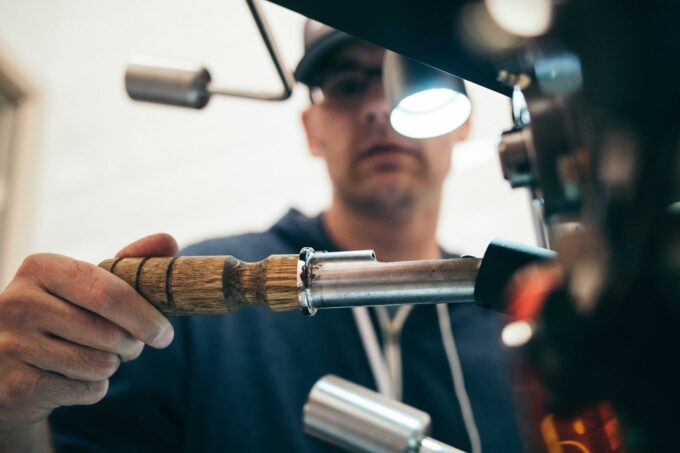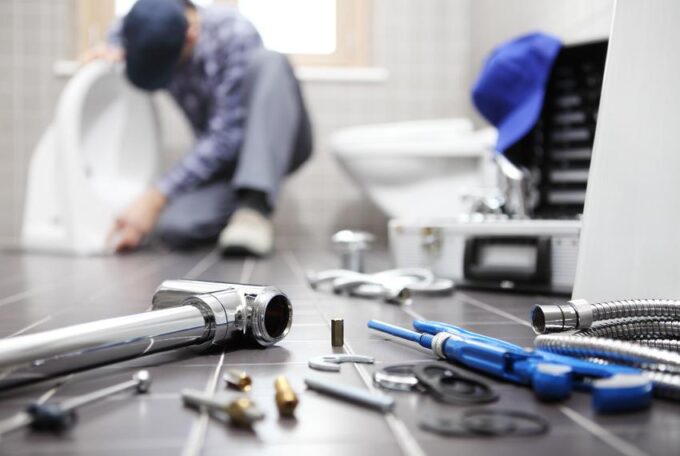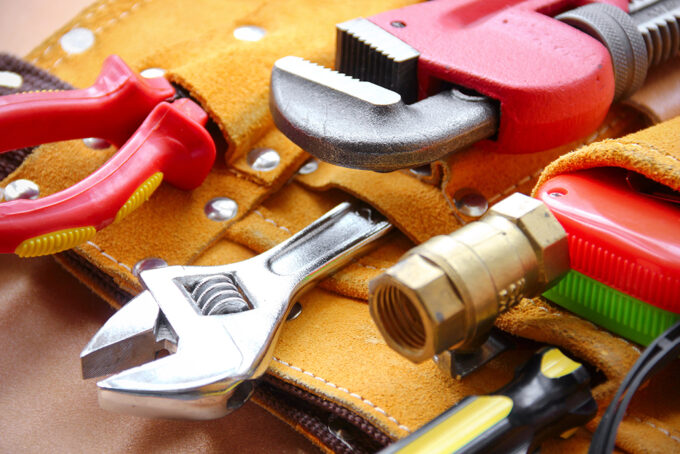Career paths look different from person to person, so we can only congratulate you if you dream of becoming a plumber.
Believe it or not, plumbers are in high demand these days, which means you have considerable chances of finding a great job in the field. Plumbing services can sometimes be overlooked, but these are crucial for a well-functioning pipe, fitting, or other apparatus systems in a home or organization. Therefore, if you’re thinking about starting a plumbing business, this is the best time to do so.
However, gaining trust and experience is vital for this kind of service, so you shouldn’t jump to the conclusion that you only have to finish your studies to become a top-notch plumber; there are far more aspects to consider if you choose this career path.
Fortunately, we can help you in this regard – this article explores various ways to become a professional plumber:
1. Enroll in technical courses

Source: homepooltrends.com
Whether you want to work for a plumbing company or become an independent plumber (plumbing contractor), enrolling in a technical course is imperative. There’s no better way to gain knowledge in the field and practice the many types of services plumbing implies. You shouldn’t have problems finding a technical course that best suits your preferences and needs because these classes are provided by various private and public schools and programs. Ask your acquaintances if they’ve heard about a suitable course nearby or loom over trade institutions, local community colleges, or professional plumbing associations for details about plumbing programs in your area.
The plumbing field covers a vast range of topics, but some of the most popular include water heating systems, pipe cutting and soldering, local plumbing codes, draining, and venting. Depending on what type of course is available in your geographical zone, try to find something suitable for you – for this, you need to be well aware of your interests and how your future career goals match your choice of the program.
2. Complete an apprenticeship
An apprentice can help you realize your full potential, so you may want to find one. The organization through which you’re getting technical training should offer an apprenticeship program, but if the contrary, you don’t need to worry – your trainers would be more than happy to further guide you on how to find a professional plumber.
Receiving the proper training is essential, but completing an apprenticeship may lay the groundwork for your career. This will not only enlarge your technical knowledge, but it will also help you gain (and hone) critical problem-solving skills, which are so necessary for a plumbing career. Once you understand that plumbing is not only about tools but also about hands-on experience, you’ll be able to deliver high-quality services.
And if you’re wondering how long an apprenticeship lasts, learn that it takes up to five years, depending on what type of training you’ve followed or the number of hours required to become an experienced plumber.
3. Get a plumbing license

Source: texastribune.org
Working under a licensed professional prepares you to operate independently, which means you can also earn a plumber’s license. A license will further help you work as a trustworthy plumber without supervision. But it’s not that easy to gain – based on your state’s requirements, you may be required to have four years of working as an apprentice. Moreover, it might be necessary to pass a plumber exam, pay certain fees, and have a certain amount of money to prove you’re financially stable to get the business up and running. So, before getting started, make sure you know the specific requirements in your region; you can even contact the professional plumber you worked with during your apprenticeship to advise you on obtaining a license.
4. Think about your specialty
As you may know, it’s impossible to be great at everything (unless you’re a genius), so you may want to narrow the scope of your work and choose a specialty. This will further allow you to develop your skills in that particular field and become an expert. Specializing in a single area would make your job easier, but it would also help you establish trust with the customer.
Among the most profitable specialties are pipefitter, construction plumber, and sprinkler fitter, although you can also become a residential, sanitary, or commercial plumber.
5. Get insurance

Source: investopedia.com
This job is as exciting as risky. We would lie if we were told you are 100 percent safe when repairing pipes and fixtures. The unexpected happens, no matter how much you want to believe the contrary, and you’d better be prepared if you or someone else gets injured while working on a messy installation. Luckily, you can get GeneralLiabilityInsurance.com to make sure your business is fully covered in the event of an accident. Proper insurance and safeguards may also be required by your state’s requirements regarding the performance of this profession. So, it would be best to check out for information in this respect to avoid any uncertainties. It’s also recommended to familiarize yourself with the plumber’s liability policies to determine what kind of damage such insurance can cover – from minor damages like pipe thread leaks to severe ones like gas explosions, plumbing insurance covers it all.
6. Purchase the right equipment

Source: bluefrogplumbing.com
If you’re thinking about starting your own plumbing business and becoming a plumbing contractor, you should seriously consider buying proper tools. Even if, in some cases, you’re allowed to keep the tools you’ve worked with during your apprenticeship, it would be helpful to purchase your own equipment, especially if you want to specialize. The #1 rule to follow is buying essential plumbing tools, such as pipes and pipe expanders, eye goggles, and wrenches. Other equipment you may need in your toolbox include clearing clogs, tube and plastic pipe cutters, pliers, a faucet key, a hacksaw, and the plumber’s torch.
Only after you’ve met all the above conditions can you think about ways to grow your business like building a strong online presence or focusing on customer service. But we’ll talk another time about these.







